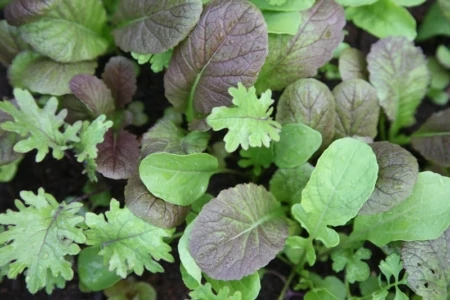Why the Conventional Agriculture Industry Is Afraid of Organic Gardening
The industry in question is the agroindustrial genetically manipulated monocrop chemicalification conglomerate. It’s a mouthful, which is why folks in this business like to refer to themselves as representatives of “conventional agriculture,” companies like Monsanto, Dow AgroSciences and DuPont Crop Protection. Let’s leave aside for a moment the fact that our friends in the agroindustrial complex have been hard at work redefining “conventional agriculture” to mean “requiring the extensive use of synthetically engineered petroleum-based fertilizers to biologically barren soils with the aim of promoting growth of genetically manipulated, non-replicating seed-like products, upon which vast quantities of industrially designed petroleum-derived biocides must be applied.” Instead, let’s focus for the time being on the news item at hand.
Not long ago, Michelle Obama announced that an organic garden would be planted on the White House property. The first of it’s kind in approx. 60 years, the garden was planted to feed the presidential family, but also serves a more symbolic purpose. It’s this purpose that has some folks “shuddering” in fear.
While some suggest the garden is a politically astute act in tough economic times (the President is required to pay for all food consumed in private meals, and a bountiful garden helps with grocery bills), its most important role, according to Mrs. Obama, “will be to educate children about healthful, locally grown fruit and vegetables at a time when obesity and diabetes have become a national concern.” Children from local schools in the area have already helped Mrs. Obama till the soil, and plant some of the 55 varieties of organic vegetables that will soon be flourishing on America’s most well-known lawn.
This is pretty cool. I learned what conventional agriculture was when I was a kid, and compared to the model used by agribusiness, mine is pretty straightforward. My mom taught it to me, and it goes like this: Place seed in earth. Water, care-for, and be patient. It didn’t involve using anything with a big “KEEP OUT OF REACH OF CHILDREN” label on it. From the sounds of it, this is the same lesson that Mrs. Obama will be teaching with the White House garden.
That such a garden became a reality is a victory for folks like Daniel Bowman Simon and Casey Gustowarow, founders of the White House Organic Farm project, and Michael Pollan, whose open letter to the next president to become a “Farmer in Chief” rallied food activists toward the symbolic significance of the Obama’s organic example. And it’s this potently positive symbolic role that has the Mid American CropLife Association (MACA) concerned. MACA represents, among others, the aforementioned agribusiness and chemical titans, companies who seem to have applied their considerable financial and political capital to the task of removing every possible opportunity for a human hands to touch the food upon which we rely.
To quote an e-mail recently passed around MACA circles: “The White House is planning to have an “organic” garden on the grounds to provide fresh fruits and vegetables for the Obama’s and their guests. While a garden is a great idea, the thought of it being organic made Janet Braun, CropLife Ambassador Coordinator and I shudder. As a result, we sent a letter encouraging them to consider using crop protection products . . .” The e-mail, along with the complete aforementioned letter is available here, but the gist is this – MACA seems more than a little concerned about how their model of conventional agriculture will stand up to Mrs. Obama’s example.
One could argue that the MACA is asking Mrs. Obama not to show children how simple, easy, and CLEAN conventional agriculture can be. Maybe MACA is right. Maybe Mrs. Obama should plant another representative garden on the White House lawn – one that showcases all the glory of the modern agro industrial model, complete with two-story tall tractors, satellite controlled biocide applications, and one vast, uninterrupted spread of corn or soybeans. On second thought, for certain companies “crop protection” means keeping seed police on hand to prevent the spread of their copyrighted genes and arrest Mrs. Obama in the event those genes cross-pollinate to the organic garden. Plus, they’ll have a heck of a time finding the child-sized hazmat suits needed for quality time in the garden.
MACA encourages others who shudder at the thought of wholesome food, grown consciously, organically, and carefully in the presence of children to contact the White House with their own letters. I think they’re onto something. If you have a spare moment, consider dropping Mrs. Obama a line to let her know what you think of the example she’s setting for America, its health, and its children.

